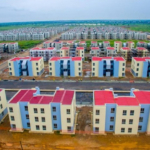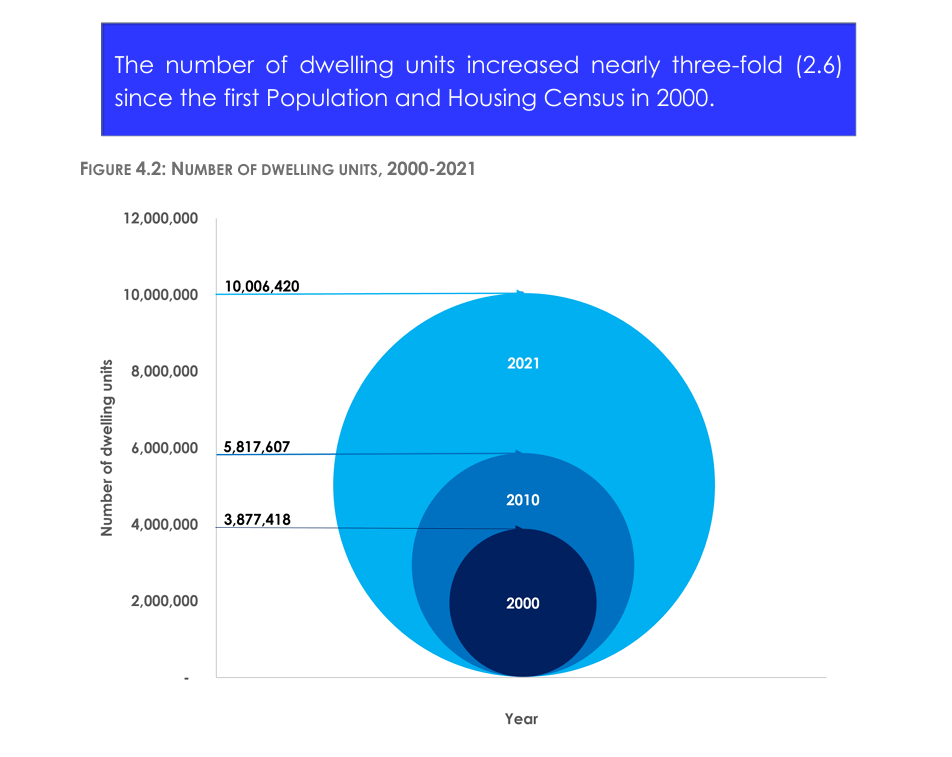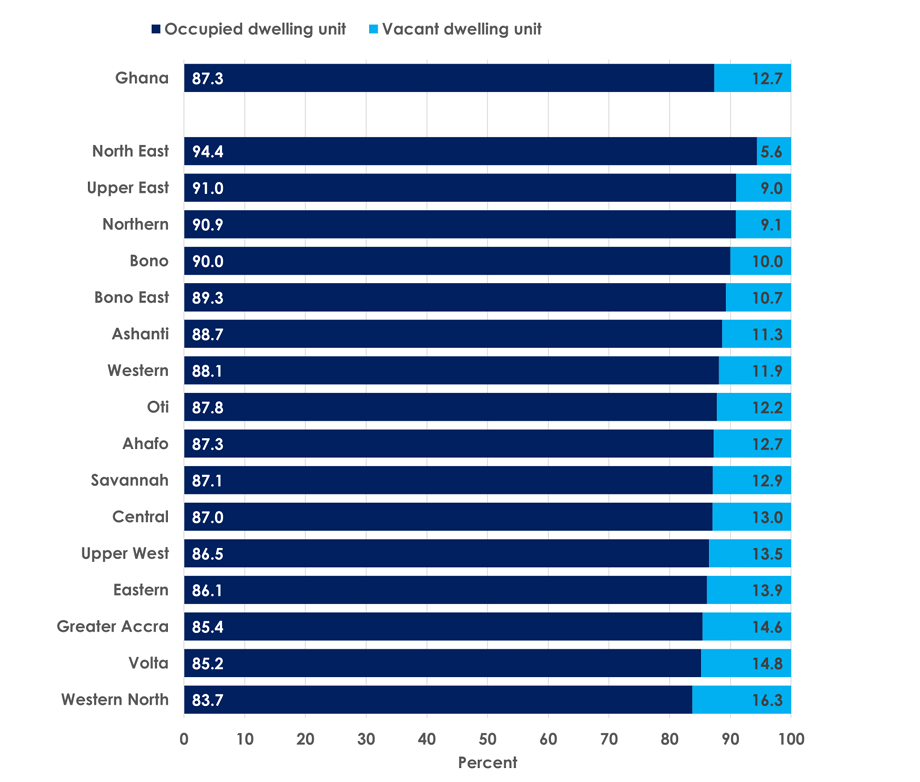
Ghana’s housing crisis is deepening, with fresh analysis revealing a striking contradiction between rising construction and widespread vacancy.
A JoyNews Research analysis of the 2021 Population and Housing Census shows that while the country’s total dwelling units have surged from 5.82 million in 2010 to over 10 million, nearly 1.3 million of these units remain empty.

This comes even as the country faces a housing deficit of nearly 2 million, revealing structural and market imbalances that continue to price many Ghanaians out of decent housing.
According to the data, the Greater Accra Region, Ghana’s most urbanized and economically vibrant area, has about 15% of all its dwelling units vacant.
The Western North Region tops the chart with 16.3% of its homes unoccupied. Other regions, including Ashanti, Eastern, Western, and Central, all record vacancy rates exceeding 11%, raising eyebrows among housing experts and policymakers.

The numbers point to a troubling trend where homes are being built not for habitation but for investment speculation, property hoarding, and possible money laundering.
This has fueled growing public concern about accountability and transparency in Ghana’s real estate sector, a space already known for weak regulation and opaque financing structures.
Despite government interventions and numerous housing schemes over the years, affordability remains a major barrier. Average rental and mortgage rates continue to outpace income levels, leaving many citizens unable to secure proper shelter while luxury apartments and gated estates stand empty.
